Birthday Quests

People with experience have probably noticed that with age, the perception of their own birthday can become dull: in childhood we wait for this holiday for six months, and then it does not cause much enthusiasm for some birthday people even on the immediate date. This is understandable, because many people make the festival too boring, limiting it to a banal feast, which, in fact, happens quite often and can be tied to absolutely any occasion.
So that the birthday is not perceived as gray and mundane, it must be supplemented with interesting events. In this context, the quest can be called one of the best inventions of mankind - with a properly selected scenario, even someone else's holiday, where you were only a guest, can be remembered for many years.



Quest organization rules
The organization of such an event is no less interesting task than the passage of the game itself, but making a good quest for the birthday person with your own hands will not work if you do not follow the elementary rules of organization. Professionals know how to avoid common mistakes, but you are not a professional, so you need outside help. We are ready to give such hints in all details.

For kids
When organizing a quest for a child's birthday, remember once and for all: the vast majority of children do not understand the principle of an intangible gift. Congratulations in the form of a cool and exciting game is great, but if you think of it and consider it the main gift, the birthday person simply won't understand you. It is difficult for a child to understand that you spent a lot of money and effort to arrange an event - without a material gift, he will think that adults have decided not to celebrate the holiday and will be offended.
This logic also fits the fact that the winners of the quest are counting on some kind of prize anyway.



It is interesting for adults to puzzle over tasks that will not help them in life, and children will not experience much pleasure from the fact that they simply won the game - they, unlike you, play games with peers every day, a feeling of victory not new to them. At the same time, the gift can even be purely symbolic, like sweets and cookies for the team - its effect will be complemented by pride in your successes and the fact that you did not receive the prize just like that, but earned it.
If a whole team participated in the quest, gifts for all should be, if not the same, then equal and correspond to the tastes or interests of the children. The birthday boy himself is given the main gift based on the results of the quest only if he passes it alone, otherwise one of the kids may be upset that he was not awarded.


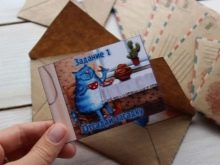
Unlike adults, there are no avid quest lovers among children as such, so the game should be themed - in the style of something that the whole company likes or the birthday man himself, if he is the only participant. What it will be - it is necessary to decide in each case individually, starting from the common interests of future participants.
At the same time, try to choose tasks so that everyone is involved in their solution, since children rarely respect the feelings of others, they will surely cheat someone that he received an award for nothing, and such persecution can destroy a group of friends.
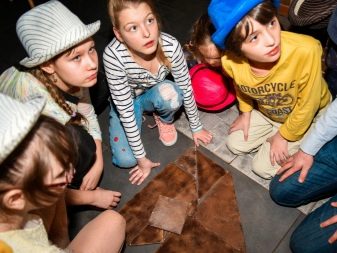
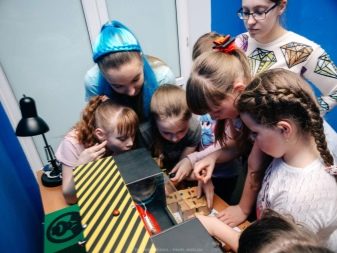
If we talk about preschoolers and primary school students, they still do not understand the division of roles in society - each such child wants to be in the center of attention, or at least not feel like an outsider. For this reason, such kids are usually not given games where there should be a clear leader - all team members are considered equal. With teenagers, the situation is exactly the opposite - many of them will gladly give up the role of a leader, and some of them will just be especially pleased to lead a gang of friends. It’s great if the birthday boy is such a leader.
The organization of a children's quest, especially for participants under 10 years old, requires special attention from adult organizers.


During the game, it is important not to forget to control the children so that they do not harm themselves (especially important when playing in open areas) and did not damage the property of the owners of the house. If the children are very young and irresponsible, the play area should be clearly limited, making sure that no one gets lost and does not get into adventures outside the quest zone.



Tasks for a children's quest, both quantitatively and qualitatively, are selected depending on the age, gender of the participants, their number and hobbies. It is easy to guess that kids will quickly get tired and, in principle, will not be able to solve complex problems designed for adults. With teenagers, the situation is the opposite - they will not be delighted with a too simple task that can be completed in a couple of minutes. However, we must not forget that the quest is all the same entertainment, which means that it should not bother and "load" too much.



For adults
The organization of a quest for adults is both simpler and more complex at the same time. The simplicity lies in the fact that for guests the very opportunity to participate in an interesting fun is already a gift, which means that you don't have to bother at all over some kind of gift for all participants. More precisely, the reward, of course, will not be superfluous, but if sweets are a necessary minimum for children, then for adult participants even such an addition to the victory itself will be a pleasant and unexpected bonus.



Since adults, on average, are much more educated and quick-witted than children, tasks can be given very diverse. If the script is being worked out for a group of friends, each of whom is well known to the organizer, then it would be very reasonable for the scriptwriter to compose tasks that literally require the involvement of all team members in the game.
Everyone is strong in one area - that's why we need to make such tasks so that the team felt that they would not be able to complete the quest if at least one of them was absent. This approach is especially appropriate if office colleagues are playing - they can actually be completely diverse people.
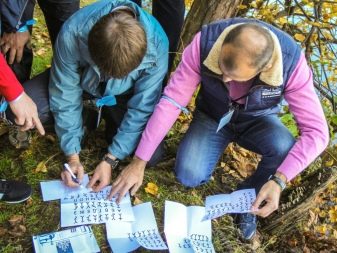
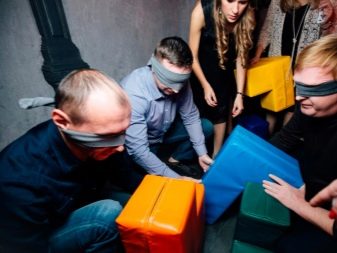
Another thing is that the general theme of the game should still be preserved. Adults are a little less picky about quests than children, but no one will be interested in participating in a game based on what they really have no idea about.
Look for how you can unite all the players, try not to confuse the participants with too difficult tasks - remember that the team must win in the end.
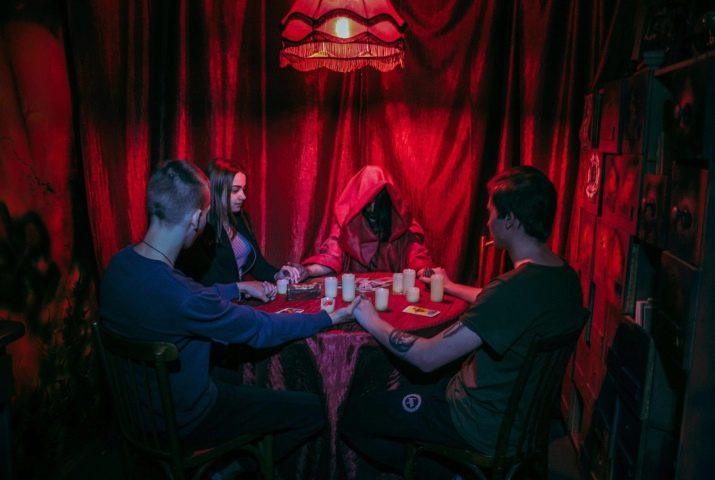
If the participants do not have so much in common, the company is rather motley, be guided by the tastes of the birthday person or the birthday girl. Do not forget about the specifics of the hero of the occasion and those invited: girls and women are far from always interested in puzzling over difficult puzzles, and for dad it can become too serious a test if you come up with tasks that require unbearable physical activity.

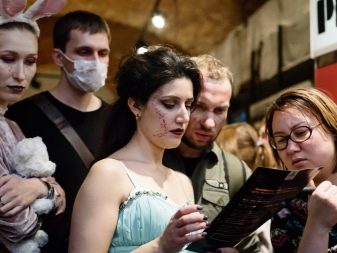
When organizing an individual quest, you can give a birthday present as a prize for completing it. If this is planned, organize everything so that the game is in the theme of the gift, especially if the hero of the occasion, be it his beloved wife, sister or son, has long dreamed of this particular thing. At the same time, the gift can be intangible - it can be tickets for a vacation or an interesting event, or even just an indication of the place and time where all the guests will gather today.
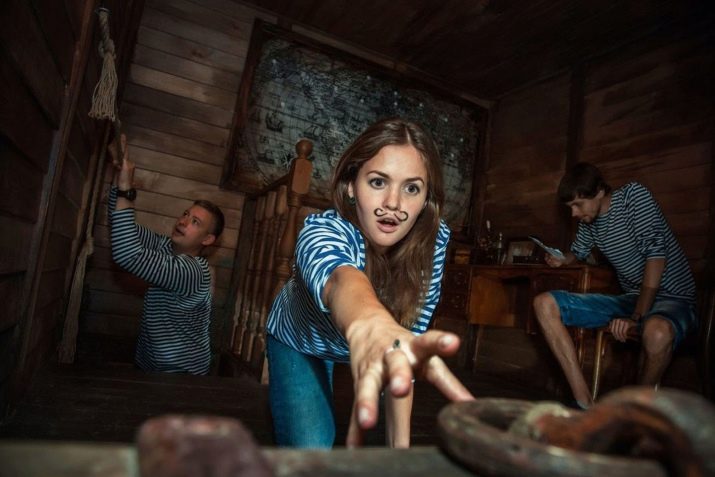
Where to spend?
The choice of location strongly depends on the specifics of the participants and the capabilities of the organizers. In fact, even the theme of a game can determine where it is most comfortable to play. Many self-developed quests are conducted directly at home, especially if they do not involve special decorations. Contrary to the point of view that this option is only suitable for children who physically take up less space, adults can also play at home.
With children in an enclosed space, a problem may arise, since they are mobile and, in search of hiding places, will quickly turn everything upside down. For adults, who solve puzzles and disciplinedly search for caches using previously received clues, this may even be the best option. At home, there are at least two indisputable advantages: the quest will definitely not fail due to bad weather, and access to outsiders is also closed here.
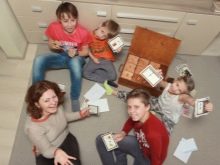
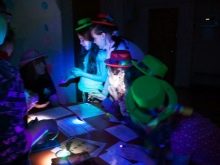

It's another matter if you need to organize a more active game. Provided that the event is held in a private house, the quest can also be organized within the backyard territory - this will help control the children so that they do not run away from the supervision of adults. If the participants are quite conscious and ready for difficulties, it is possible to organize a search for caches around the city or beyond, but then it is probably worth explaining to the participants at least the limits of the playing area, otherwise the players may disperse and the game will drag on.
The main difficulty of playing outdoors is the likelihood of strangers ruining the caches, so you need to prepare immediately at the last moment. In addition, all plans can be confused by sudden rain, strong winds and other weather disasters.

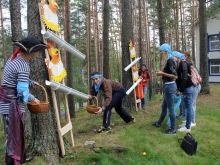
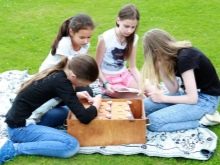
A separate topic is the quest in the cafe. If you have arrived in a large company and rented an entire establishment or its separate hall for the holiday, you can agree with the administration so that it will allow you to conduct the quest right here. For this, it would be logical to hire a professional presenter - he can calmly prepare the quest while the guests are just getting to the place, and most importantly, then none of those present will know how to complete the game.
In such an “out” quest, only the birthday man himself usually participates, who, without knowing it, is looking for the main gift of the evening. Such entertainment will be interesting for all other guests, who will receive, as a kind of gift, a spectacle of the "torment" of the birthday man.



Choice of topics
When deciding on a topic, remember: your main task is to come up with an idea that will be considered cool by the direct participants. A simple example: if you are an avid fan of the MCU and have reviewed all the parts several times, you will probably be tempted to do a superhero-themed quest, especially since it is popular. However, first ask yourself if the participants themselves share your passion - if they are not as experts on the topic as you are, a simple question from the organizer's point of view can confuse the entire team. In addition, the wrong choice of topic kills all interest in the game, and hearing that someone is tired is a verdict for the organizer.


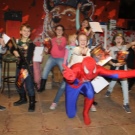


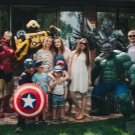
Yet again, do not grab onto the most popular and even interesting topic for the participants if you are not sure that you can carry out the quest on it at the proper level. It's not so bad with adults - they will be interested in the long-forgotten spirit of excitement, they can be content with just a good plot, not paying attention to the lack of decorations.
This will not work with children - they went through most of the puzzles and tasks at school, and all the "fun" happens precisely due to immersion in a fairy tale. If this is a pirate quest, get at least one cocked hat and make interesting blindfolds, distribute vests to the participants, and so on. Have come up with something about detectives - find somewhere an old magnifying glass and a raincoat.
Without the minimum props, the color of what is happening is lost, it turns out that we, like animals in an experiment or people at work, receive a reward for completing simple tasks, and this is not so interesting at all.



The quest itself is usually devoted to finding something, the only question is what. Even if the participants are looking for a conditional key, it can be played up in completely different ways - let the children try to open the immediately given out treasure chest, while adults can tickle their nerves by moving into the atmosphere of the famous horror movie Saw.
In fact, imagination can be almost limitless, and the whole topic can be tied to a gift that eventually awaits the birthday boy at the finish line.



Task list
The principle of any quest is to sequentially or randomly find caches with riddles, guessing which gives a clue as to the next level or the final location of the main prize.

You can do funny and interesting tasks on paper on your own, and the form of such riddles-hints will be varied.
- Picture or photo. The simplest thing is to print an image of the place where the next note is hidden. The competition can be complicated by making puzzles from the photos - so, the broom and the outlet together clearly hint at a vacuum cleaner.
- Puzzle. The principle is the same as for the picture, but the image is cut into several pieces that must be folded to get a hint. In complex scenarios, puzzle pieces are also hidden in different places, so finding a clue will not be too easy.
- Tooltip with rearranged letters. Directly indicate in the note where to look for the next cache, but rearrange the letters to get the participants to puzzle over what was meant.
- Encrypted messages. At the start of the game or in one of the caches, give the players a rebus in the form of a word (better a phrase) with rearranged letters, where each letter will be assigned a number. This riddle will be easier to solve thanks to the numbers, but the next clues will already consist only of numbers, so the participants will have to keep the old note.
- Hints or questions written backwards. For adults, you can write whole sentences in this way, which also turn out to be riddles that require an answer.
- Mirrored text. In the next letter, the hint can be written so that it could be read only in the mirror. Make sure that there is a mirror in the apartment or directly with the players, otherwise the task may be too difficult.
- Rebus. Actually, the classic of encryption, but you should not think that it is purely childish. Having searched the Internet, you can find complex puzzles that even adults will thoroughly puzzle over.
- Riddles. Another classic option, where the answer will be a hint where the team should move on in its quest.
- Invisible messages. This task is clearly not for children - at best, teenagers can cope with it, and even that is not a fact. You can write an invisible text at home with wax, lemon juice or milk, such letters "appear" by heating the paper or painting it with watercolors. Again, make sure the participants have the technical ability to read the text, and give them some kind of hint - not everyone is as cunning as you.
- Route tips. This option is suitable for a large-scale game in an urban setting; for its implementation, you need to draw a map with a route through the control points. Each point can contain only one letter, later they will be added to the main hint. You can keep the intrigue all the way if you put the letters in the wrong order. In addition, you can leave a whole word at each point, which will be collected either in a hint or in a riddle.
- Quiz. This option is most appropriate if there are a lot of participants in the game - so much so that they had to be divided into two teams. Since only one side can win anyway, this is the only case when consolation prizes are required even for adult participants.
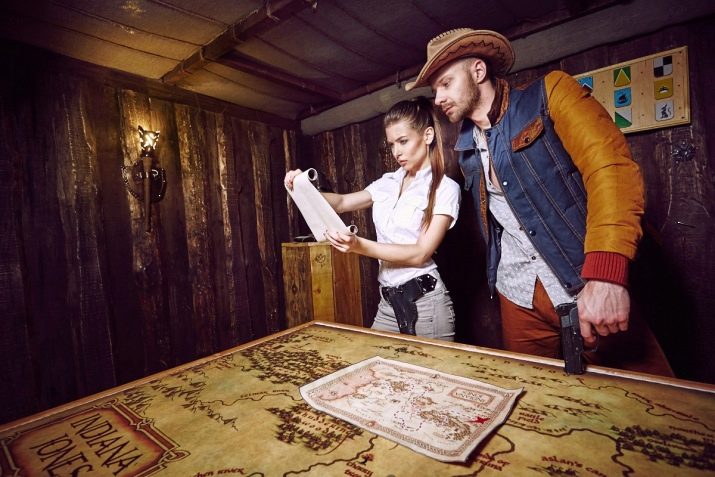
Scenario options
In each case, you need to build on your own capabilities and improvised means, but for a full-fledged launch of a fantasy, an example of a script is needed that will work and hook. Here are a couple of these, and you either significantly alter, or make pinpoint changes, or "steal" as it is.
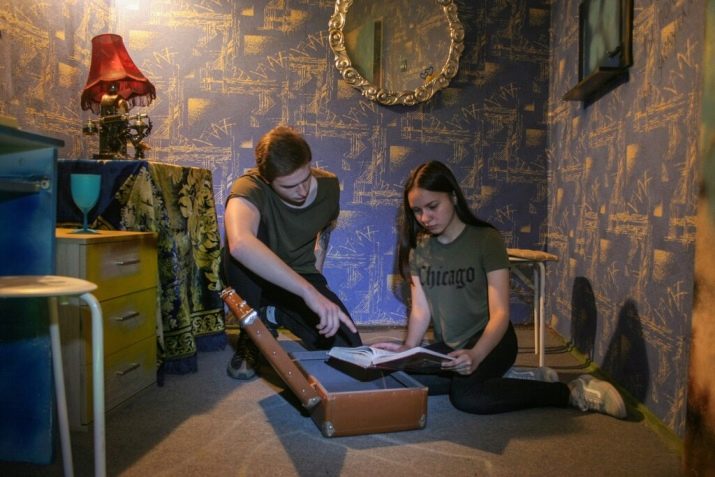
Put the starting message in a conspicuous place so that the birthday person can find it himself. Add intrigue by suggesting to defeat the dragon and take the egg from him - hint at the place and hide the toy dragon with «Kinder by surprise», inside which will be the next hint. Offer to drink a magic potion and hide any drink, indicating its place in the form of a picture.
Immediately hang up the following figurative clue, writing that you need to look "at your home North Pole", that is, in the freezer. Hide there an envelope with cards "who eats what" - three animals and the type of food for each of them. By matching the pairs and turning over the pieces of paper, the player will see where the next clue is.


In it, ask the person to turn on the computer and find a specific file in it. Immediately write that it is password protected, and the password is the answer to the attached riddle. Create a text document, give the following hint in it, and then zip the file - you can put passwords on archives. As a result, already in a text document, you can transparently or in the form of a riddle, rebus, and so on, make it clear where the gift is hidden.
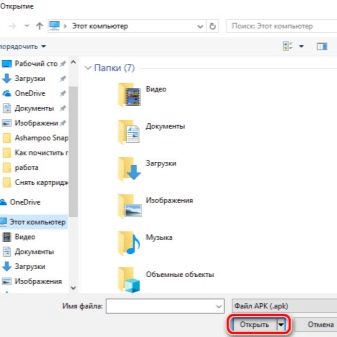
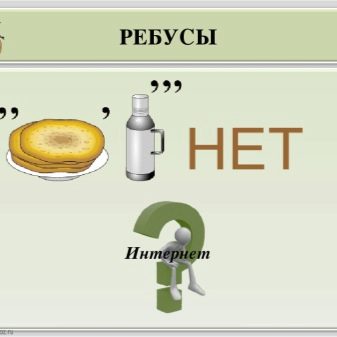
The alternative option also starts with a postcard, but first leads to the book - it is better not to indicate the title and page, but only to hint where the hint may be. Then offer to climb Everest - let the birthday man look for the highest point of the apartment.Hide the task with the game "Connect by Dots" there, ideally let it be an animal, in whose collar the next stage is safely hidden.
Indicate the next place with a puzzle cut from a hand-made drawing - for example, let it be a teapot. Hide any cards in the kettle that will allow you to combine them in pairs by associations, and hint words will be written on the back, readable only when the cards are paired.

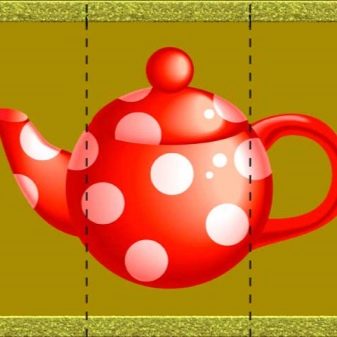
Write on the cards that the next clue is related to the largest flower in the house. Place the letter with the riddle behind the pot, which leads to the sofa, wardrobe, and so on. The number of stages can be done in any way, but the subtlety is different - with each hint, the player receives letters in a random order. Only by collecting the entire set together, he can reflect on what is encrypted there, and this will be the answer to the question of where the gift is hidden.
The advantage of this approach is that it is almost impossible to guess the final answer in advance.
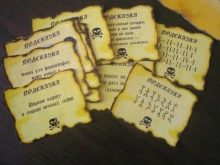


For some more interesting scenarios for birthday quests, see the next video.








